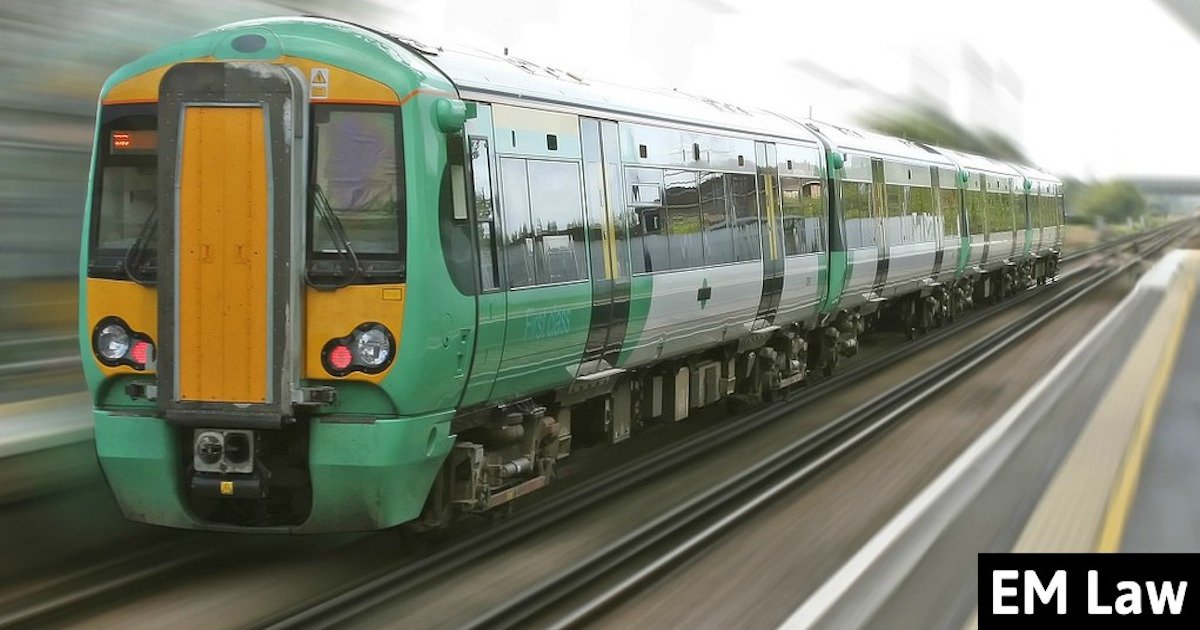The Employment Appeals Tribunal in the case of Crawford v Network Rail Infrastructure Ltd UKEAT/0316/16 has held that a worker’s right to compensatory rest for a 20-minute rest break under the Working Time Regulations 1998 (SI 1998/1833) (Working Time Regulations) must be given as an uninterrupted rest break of 20 minutes. Allowing a railway signalman to take a number of shorter breaks throughout his eight-hour shift, which in aggregate amounted to substantially more than 20 minutes, was not compliant.
Background
Under the Working Time Regulations, a worker is entitled to a rest break if their daily working time exceeds six hours (regulation 12(1)). A rest break is a period of at least 20 minutes which the worker is entitled to spend away from their workstation, if they have one (regulation 12(3)).
Workers falling within a number of “special cases” under regulation 21 of the WTR, including those working in rail transport whose “activities are linked to transport timetables and to ensuring the continuity and regularity of traffic” (regulation 21(f)), are excluded from entitlement to a rest break under regulation 12(1). However, in such cases, regulation 24 provides that:
- His employer shall wherever possible allow him to take an equivalent period of compensatory rest (regulation 24(a)).
- In exceptional circumstances in which it is not possible, for objective reasons, to grant such a period of rest, his employer shall afford him such protection as may be appropriate in order to safeguard the worker’s health and safety (regulation 24(b)).
In Crawford v Network Rail Infrastructure Ltd UKEAT/0316/16, the Employment Appeals Tribunal considered whether a railway signalman had been given adequate compensatory rest when he was permitted to take a series of short breaks while remaining “on call”.
Facts
The Claimant – Mr Crawford – was a railway signalman working on single manned boxes on eight- hour shifts. He had no rostered breaks but was expected to take breaks when there were naturally occurring breaks in work whilst remaining “on call”. Although none of the individual breaks lasted 20 minutes, in aggregate they lasted substantially more than 20 minutes.
Mr Crawford claimed that he was entitled to a 20 minute “rest break” under regulation 12 of the Working Time Regulations or “compensatory rest” under regulation 24(a). The Employment Tribunal found that regulation 12 did not apply and that the arrangements were compliant with regulation 24(a).
Mr Crawford appealed on the basis that “an equivalent period of compensatory rest” must comprise one period lasting at least 20 minutes.
Decision
Judge Shanks in the Employment Appeal Tribunal found in favour of Mr Crawford – agreeing with him that adequate compensatory rest had not been provided.
Judge Shanks picked up on the Employment Tribunal’s finding that Mr Crawford had not requested (and had therefore not been refused) any different arrangements to the ones he was obliged by Network Rail to follow and noted that, in fact, Mr Crawford had more than three months before the starting of the tribunal proceedings brought a substantial grievance and then an appeal which raised the very complaint that he took to the tribunal, namely that he did not have a continuous 20-minute break. Judge Shanks noted that Mr Crawford’s complaint and the appeal were dismissed and no steps were taken to change the system. Accordingly, the only question to be determined was whether the tribunal had been entitled to find that what was provided on such occasions amounted to an equivalent period of compensatory rest.
Judge Shanks examined the case of Hughes v The Corps of Commissionaires Management Ltd [2011] EWCA Civ 1061 (8 September 2011) noting that the mere fact of being “on call” during a break would not mean that the break couldn’t amount to a compensatory rest break in accordance with the Working Time Regulations. However, he concluded from the judge’s reasoning in that case, that the compensatory rest must comprise a break from work which must last at least 20 (continuous) minutes.
Comment
Crawford v Network Rail Infrastructure Ltd makes it clear that if a worker’s daily working time exceeds 6 hours, the worker must have an uninterrupted single period of at least 20 minutes’ rest.
Also of note: Network Rail ran an argument that their system worked better from a health and safety perspective than a system involving a continuous 20 minute break. This argument was rejected as irrelevant.
For any questions that you have concerning the Working Time Regulations please do not hesitate to contact us.

